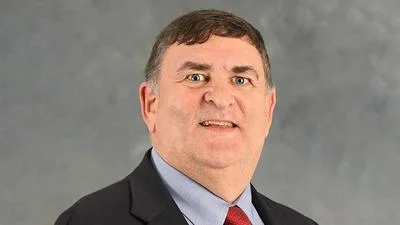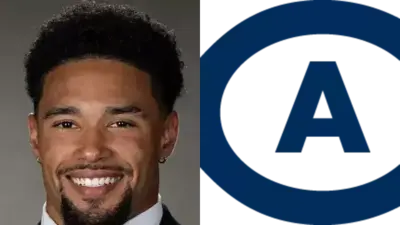Rep. Paul Jacobs (R-Pomona) | Photo Courtesy of Paul Jacobs' website
Rep. Paul Jacobs (R-Pomona) | Photo Courtesy of Paul Jacobs' website
Illinois State Rep. Paul Jacobs (R-Pomona) shared details about the audit of the Business Interruption Grant program in a recent Facebook post.
"An audit of the $585 million Business Interruption Grant (BIG) program reports checks on the spending 'failed to work as advertised' with insufficient oversight," Jacobs wrote on Tuesday, May 30.
According to the Department of Commerce and Economic Opportunity, the objective of the Business Interruption Grant Program is to provide economic relief of $580 million to small businesses severely impacted by COVID-19. This allocation includes $290 million for child-care professionals and an additional $290 million for other small businesses, with an average grant award of $30 million. Recipients of these grants can be found here.
The Illinois General Assembly biography for Jacobs said he was elected to represent the 115th House District in 2020 and now represents the 118th House District; he is a Navy veteran, optometrist and former owner of the Von Jakob Winery. In his Facebook post, Jacobs shared a link to a Center Square article focusing on an audit of the Business Interruption Grant program.
According to a report from the office of Illinois Auditor General Frank Mautino, as reported on in The Center Square, the Business Interruption Grant Program was found to suffer from inadequate program oversight and administrative issues. The report emphasizes a lack of documentation regarding the selection process for organizations administering the initial phase of the program and identifies grant recipients who were ineligible for the grants.
Mautino outlined significant discoveries in a 126-page audit report released on Wednesday, May 24. The report highlights various key findings, including the absence of documentation by the Department of Commerce and Economic Opportunity (DCEO) to clarify the rationale behind selecting specific organizations to administer the initial phase of the program. Additionally, it suggests a potential violation of conflict of interest policies by a DCEO official and a grant administrator.
The audit report further reveals that the small business segment of the grant program commenced before emergency administrative rules were established to provide guidance, and those rules were not implemented during the first round. Furthermore, it says that small grant applicants under the BIG program were responsible for self-verification of their compliance with funding regulations and reporting requirements.
However, the DCEO did not verify the accuracy of the information provided, resulting in funding being granted regardless of the applicants' compliance or non-compliance with pandemic funding reporting rules, the report said.
Another finding revealed, "DCEO failed to monitor that the payment of small business component funding was provided within program guidelines. During our testing, we found that in 49% (67 of 136) of the cases, the grant administrator failed to provide funding within 14 days of DCEO approval."
The audit findings are available here.
As of January 2021, the DCEO reported that a total of 8,974 grants were awarded. Among these grants, 3,597 (32%) were provided to minority-owned businesses, and 3,347 grants were given to woman-owned businesses. Out of the total grants awarded, 3,747 were allocated to restaurants and bars, while 2,105 were designated for "other priority and heavily impacted industries."
Arts and events support service businesses received 535 grants, and gyms and fitness centers obtained 636 grants. Event spaces and performing arts venues were granted 518 awards, while indoor recreation businesses received 269 grants. Additionally, there were 61 grants awarded to businesses with revenue exceeding $5 million in 2019, whereas the majority, 5,941 grants, were given to businesses with revenue below $500,000 in 2019.
Notably, 3,157 grants were specifically allocated to downstate counties that did not receive federal funding. The majority of grants, constituting 82% or 7,381 grants, went to businesses with annual revenue of less than $1 million, according to the DCEO document.






 Alerts Sign-up
Alerts Sign-up